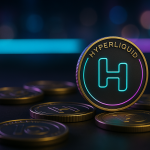The Shiba Inu (SHIB) cryptocurrency community has actively escalated the rate at which they burn tokens, seeing a substantial spike in this deflationary practice. This proactive approach to reducing the token supply has captured the attention of crypto traders and sparked discussions on the potential impact on SHIB’s value.
Community Efforts Propel Token Burning
Recent data indicates a dramatic upsurge in the number of SHIB tokens destroyed, with a notable 300% jump recorded within a day. This activity coincides with a period of downward price movement but has not dampened the enthusiasm among SHIB advocates. The community’s robust action, characterized by significant token shipments to a designated dead wallet, reflects their commitment to bolstering the token’s economic foundation.
The intensified burning rate aligns with the Shiba Inu’s strategic partnerships, notably with Grayscale Investments, to drum up support for a proposed Shiba Inu exchange-traded fund (ETF). Communications from the altcoin’s promotional team suggest a sustained campaign to bring the spot ETF to fruition.
Price Movement Amid Rising Optimism
Despite the buzz around a potential ETF and aggressive token burning, SHIB’s price has slid by 7.72% over the past day. However, recent weeks paint a more optimistic picture, with SHIB’s price showing significant boosts on weekly and monthly scales, buoyed by these community-led initiatives.
Further scrutiny into SHIB’s pricing charts points to a critical resistance point at $0.000034, with aspirations to breach this threshold and target higher valuations. Nonetheless, investors and market players are advised to approach with caution, given the slight overbought indications presented by the Relative Strength Index (RSI).












